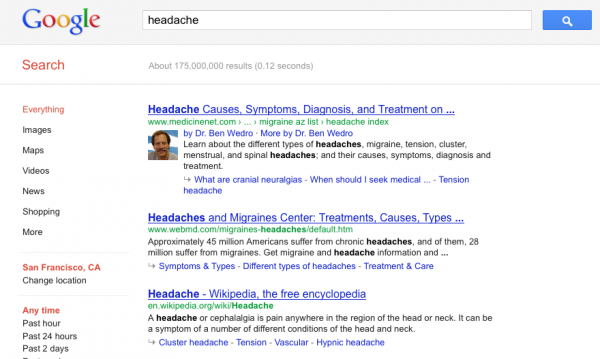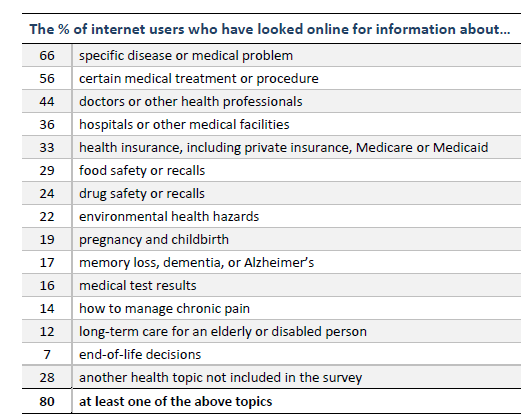Where’s It Hurt? After You Search For A Symptom, New Google Health Search Results Suggest Causes
Roughly 100 million people in the US search for health information on a monthly basis, according to 2011 comScore data. Google has seen these queries up close and recently concluded that it doesn’t do a great job of servicing them. The company is thus introducing improved results that shorten the time from symptom-related search to […]

Google Chief Health Strategist Roni Zeiger, MD, says the company sees users search on health symptoms and then almost immediately turn around and search for conditions they discovered in those initial search results. As a consequence Google is now going to “compress” that two or three-step process into one. Zeiger explains in a blog post this morning announcing the new symptom-related search results:
To make the process easier, now when you search for a symptom or set of symptoms, you’ll often see a list of possibly related health conditions that you can use to refine your search. The list is generated by our algorithms that analyze data from pages across the web and surface the health conditions that appear to be related to your search.
Below are a couple of “before and after” examples for “headache” and “trouble breathing and tired” to illustrate the change. The “after” screenshots were provided by Google.
Zeiger told me that nothing on the AdWords side would change or be affected by the new results. He also said that Google was being relatively conservative about when to trigger these results. People are also unlikely to see these symptom-conditions results when they directly search on medical conditions. For example, “chest pain” is the type of query that will trigger these results but not “heart attack.”
I asked Zeiger if there was any human editorial involvement or intervention here. He said that there was not; it’s entirely an algorithmic result.
In late 2010 the Pew Internet & American Life Project released survey data (n=3,001 US adults) that showed how heavily search engines are used to find health and health-care related information.
Source: Pew Internet Project (9/10)
Contributing authors are invited to create content for Search Engine Land and are chosen for their expertise and contribution to the search community. Our contributors work under the oversight of the editorial staff and contributions are checked for quality and relevance to our readers. Search Engine Land is owned by Semrush. Contributor was not asked to make any direct or indirect mentions of Semrush. The opinions they express are their own.







